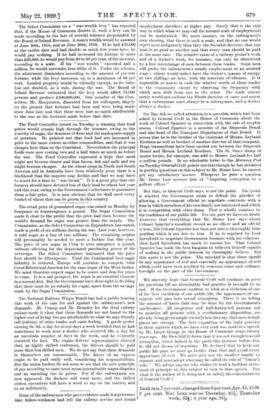The Select Committee on a "war-wealth levy" has reported that,
if the House of Commons desires it, such a levy can be made according to the last of several schemes propounded by the Board of Inland Revenue. A man's wealth would be assessed at June 30th, 1914, and at Jime 30th, 1919. if he had £25,000 at the earlier date and had double as much five years later, he would pay nothing. If he had increased his fortune to more than £50,000, he would pay from 40 to 80 per cent. of the increase, according to a scale. If his " war wealth " exceeded half a million, he would surrender four-fifths of it. Under the scheme, the abatement diminishes according to the amount of pre-war fortune, while the levy increases, up to a maximum of 80 per cent. Landed property would be virtually exempt, as its value has not doubled, as a rule, during the war. The Board of Inland Revenue estimated that the levy would affect 75,000- persons and produce £500,000,000. One member of the Com- mittee, Mr. Macquisten, dissented from his colleagues, largely on the ground that fortunes had been and were being made since June last, and that these were just as much attributable to the war as the fortunes made before that date.


































 Previous page
Previous page